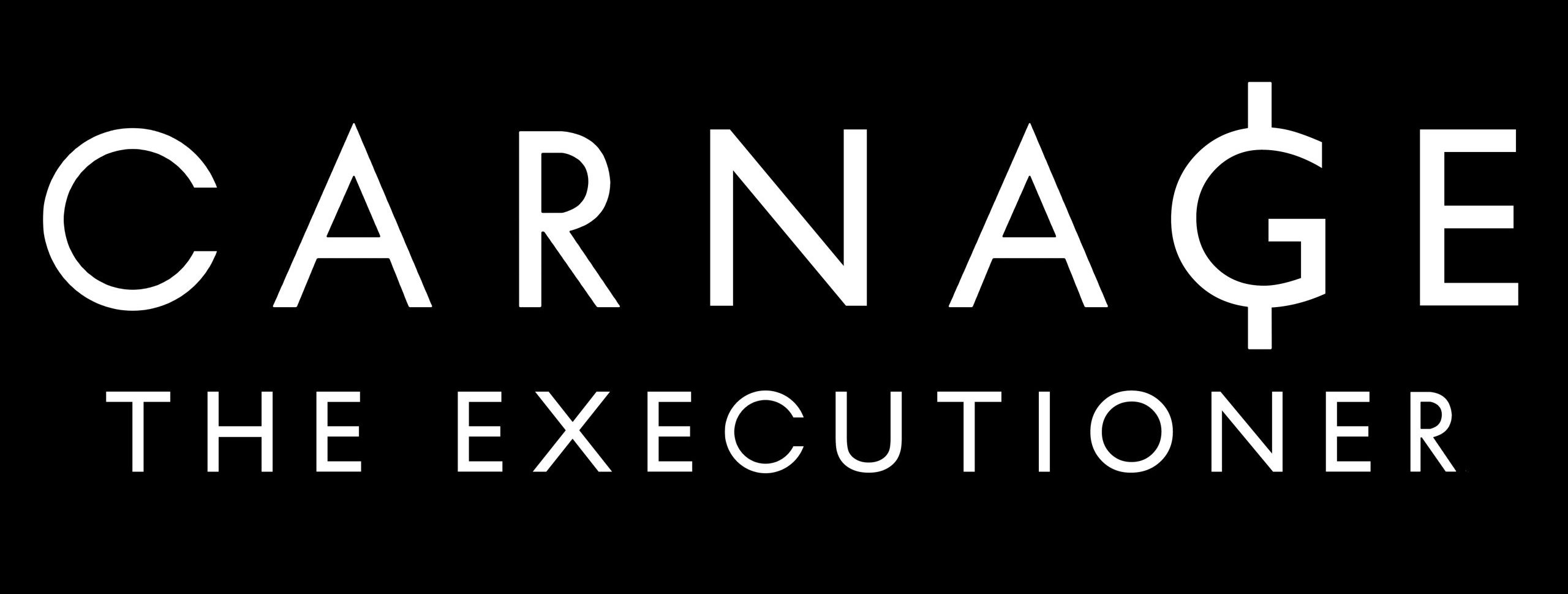Read the interview below or at SioxCityJournal.com:
Hip-hop saved Terrell Woods’ life. So if anybody disrespects the music that has molded him into the artist he is today, that person is insulting more than just a genre. For Woods, hip-hop is more than that. It provided him comfort and a way out of a destructive and possibly fatal future.
“I could have been out robbing people like I started to do, but I started doing hip-hop instead,” said Woods, who is often referred to by his stage name Carnage The Executioner. “I tried my hand in crime, but I realized it wasn’t for me. I was an artist. So I began to delve into music instead of criminal activity as a means of keeping myself busy.”
Woods, 40, was first introduced to the world of hip-hop through beatboxing; he was 8 at the time.
Woods also wanted to be a DJ or a drummer. But he couldn’t afford turntables and he couldn’t afford a drum set. His art had to come cheap. Writing rap lyrics and spitting a few beats fit the bill.
He looked up to other beatboxers; his main influence was Darren Robinson a.k.a. Buff Love, The Human Beat Box from The Fat Boys, a hip-hop trio from Brooklyn, New York City. By the time Woods was nearly a teenager, he had taught himself to do everything Buff Love could do.
Once Woods felt he had enough experience beatboxing, he started to rap. Currently, Woods makes a living combining his two arts and performing to the thriving underground hip-hop scene in Minneapolis. Using similar pedal techniques a looper might utilize, Woods beatboxes his own beats and rhythms and proceeds to rap to his creation.
“That’s my contribution to hip-hop – putting the two things that I was pretty good at together and doing them in a way that I had never seen other rap artists do,” said Woods. “I found something and I’m going to stick with it and see where it can take itself.”
But getting to where he is now took some time. As a youngster, learning the ropes, Woods lived in foster homes and therefore couldn’t venture off to see local hip-hop shows – a trend that would continue until he was 18 years old.
“I got a late start,” he said. “I might have even performed in a talent show before I saw my first live hip-hop show.”
When Woods finally got a chance to perform in front of people, beatboxing and rapping were merely hobbies. He wasn’t aiming to be successful by any means. But after venues started to pay him for his efforts, he saw a possible future for a career in hip-hop.
He wrote more. He rapped more. And he tried out different styles of hip-hop; a trait, he said, helped him stand out from the crowd.
“I’ve been listening to hip-hop longer than some people have been rapping,” Woods said. “I understand that it takes more than just being a good rapper in order to be noticed and to be successful.
“My willingness to step outside of just rapping is something that sets me apart from artists around here. I’m not saying I’m better than anybody. But I am willing to do something different that other people haven’t tried.”
Which may explain why Woods fits in so well with the rest of the Minneapolis hip-hop scene. The genre, he said, may be “one of the most sought-after music forms” in the area. He added that any given night, two or three hip-hop shows may be going on at the same time.
But the scene has changed from when Woods was growing up. It was grittier and it came from a different place and the raps told different types of stories. And good rappers earned respect among the community.
The demographic has changed, too. Woods said a majority of the rappers on the scene when he was growing up were black.
“Now, less than half of them are,” he said. “The paradigm has shifted from it being a more urban art form to an art form expressed by a large number of Caucasians.”
Which is fine, he said. The genre is growing and changes are expected to happen. But Woods said paying respects to and acknowledging the roots of hip-hop is a necessity for every rapper. Entitlement will get you nowhere.
“Know the history and what you’re dealing with,” said Woods. “You’re not going to apply for a job without knowing the history of the job – that’s the way I look at hip-hop. You can’t be doing an art form and think you’re bigger than it.”
Trying something new is a good way to get noticed in the hip-hop and underground music communities.
“I like music where I don’t know exactly what I’m going to hear when I listen to it,” Woods said. “I like to be surprised and I like to get a wide range of topics coming at me and I like to be challenged. There is some good underground rap out there that challenges you to think for yourself.
“There’s a lot of life, a lot of edge and a lot of knowledge in some underground hip-hop. It’s just not being represented. I want to be that dude that people go, ‘You know what? That dude was always so dope even though he never got a lot of credit.’ That’s the guy I want to be.”
Until that happens, Woods will continue to live fine and feed his family using the money his hip-hop career makes. To him, that’s credit enough.
